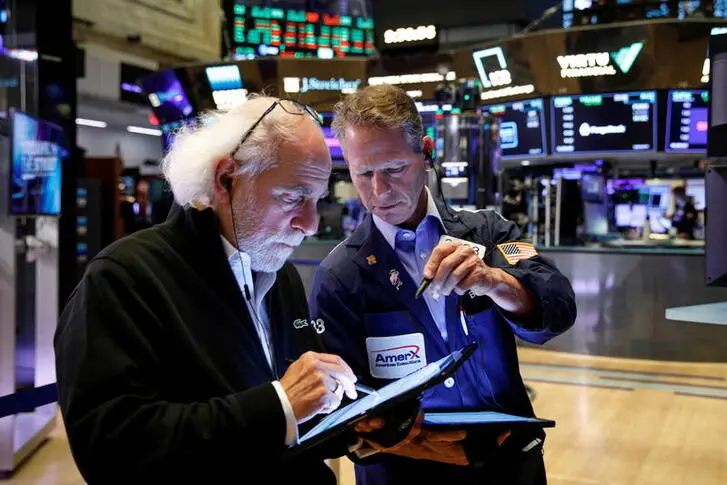PHOTO
NEW YORK/LONDON: Global stock markets slid on Friday while benchmark U.S. bond yields fell to a more than two-month low after data showed U.S. job growth slowed considerably in November and markets stayed volatile as investors assess implications from the new Omicron coronavirus variant.
After opening higher, Wall Street's main indexes quickly turned negative with the tech-heavy Nasdaq falling more than 2%. European markets also lost gains and ended lower. MSCI's gauge of stocks across the globe shed 1.02%.
Omicron has gained a foothold in Asia, Africa, the Americas, the Middle East and Europe and has reached seven of the nine provinces of South Africa, where it was first identified. Many governments have tightened travel rules to keep the variant out.
"The top issue is still this whole Omicron variant. There are enormous amounts of uncertainty there," said Randy Frederick, vice president of trading and derivatives for Charles Schwab in Austin. "Volatility means big moves in both directions and we have had a lot of up days and a lot of down days that are both very sizable here just in the last week. ... The market is a bit treacherous."
The Labor Department said U.S. nonfarm payrolls increased by 210,000 jobs last month, well below the 550,000 jobs economists polled by Reuters had forecast, but the unemployment rate plunged to a 21-month low of 4.2%, suggesting the labor market was rapidly tightening.
"On the surface, the numbers came in disappointing because they did not match expectations, but it was not a weak report," said Kevin Flanagan, head of fixed income strategy at WisdomTree Investments.
On Wall Street, the Dow Jones Industrial Average fell 149.72 points, or 0.43%, to 34,490.07, the S&P 500 lost 56.27 points, or 1.23%, to 4,520.83 and the Nasdaq Composite dropped 373.35 points, or 2.43%, to 15,007.97.
The pan-European STOXX 600 index lost 0.57%.
The data caps a turbulent week as investors assess the implications of the Omicron variant and what that means for growth, inflation and ultimately central bank policy.
Markets were also digesting Federal Reserve Chair Jerome Powell's comments this week that U.S. central bankers in December will discuss whether to end their bond purchases a few months earlier than had been anticipated.
U.S. Treasury yields saw choppy trading.
Benchmark 10-year notes last rose 23/32 in price to yield 1.3716%, the lowest level since Sept. 23, from 1.449% late on Thursday.
Currencies also were volatile. The dollar index last rose 0.059%, with the euro up 0.08% to $1.1308. The Japanese yen strengthened 0.33% versus the greenback at 112.79 per dollar.
Crude prices edged higher after producer group OPEC+ said it could review its policy to hike output at short notice if a rising number of pandemic lockdowns chokes off demand.
U.S. crude recently rose 0.65% to $66.93 per barrel and Brent was at $70.48, up 1.16% on the day.
Spot gold added 0.6% to $1,779.73 an ounce.
(Additional reporting by Karen Pierog in Chicago, Dhara Ranasinghe in London, Tom Westbrook in Sydney; Editing by Alison Williams, Will Dunham, Kirsten Donovan and Nick Zieminski) ((lewis.krauskopf@thomsonreuters.com; 646-223-6082; Reuters Messaging: lewis.krauskopf.thomsonreuters.com@reuters.net, Twitter: @LKrauskopf))
((To read Reuters Markets and Finance news, click on https://www.reuters.com/finance/markets))





















